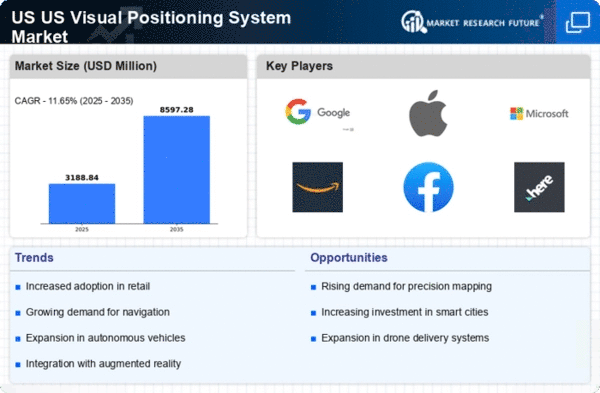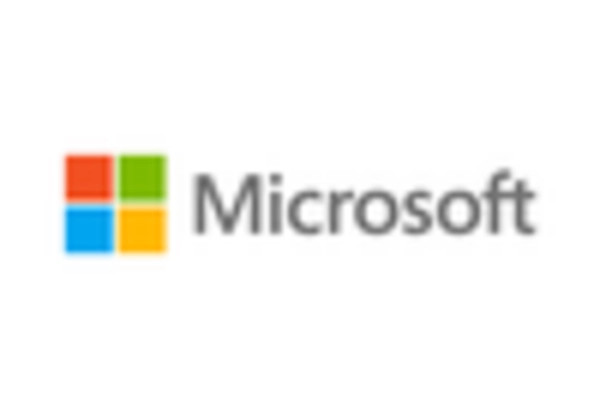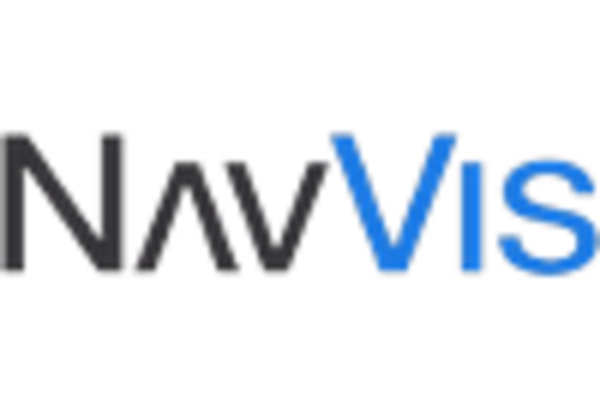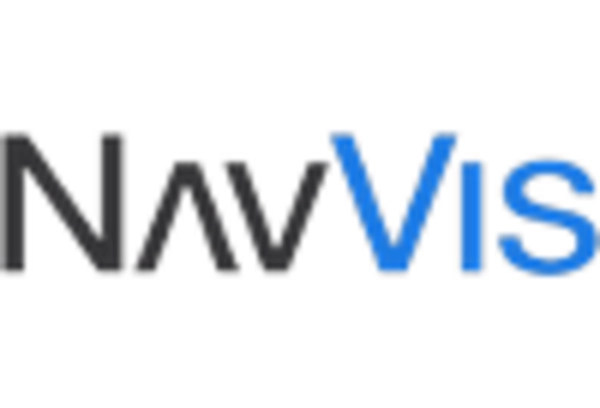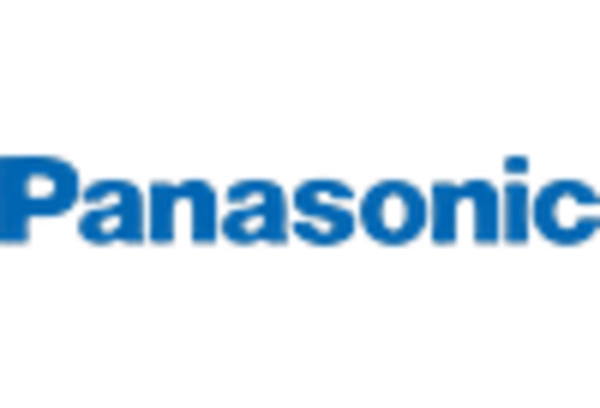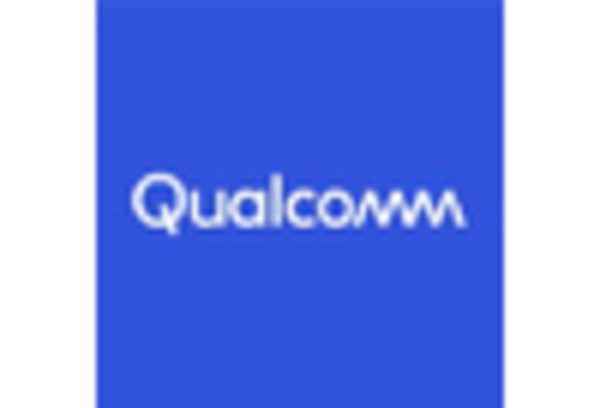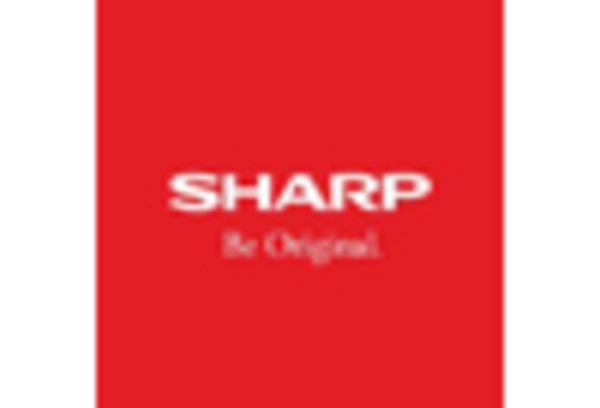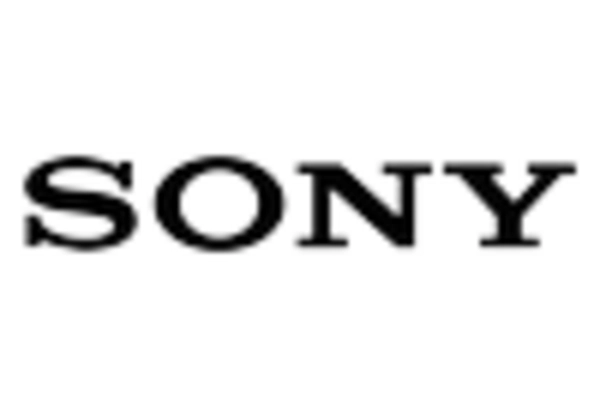Emergence of Smart Cities
The emergence of smart cities is a transformative trend that is influencing the US Visual Positioning System Market. As urban areas increasingly adopt smart technologies to improve infrastructure and enhance the quality of life for residents, visual positioning systems are becoming integral to these developments. These systems facilitate efficient traffic management, public safety, and urban planning by providing accurate spatial data and real-time analytics. According to projections, investments in smart city initiatives in the US are expected to reach over 100 billion USD by 2026, creating a substantial market opportunity for visual positioning technologies. The integration of these systems into smart city frameworks not only enhances operational efficiency but also supports sustainable urban development. As cities continue to evolve, the US Visual Positioning System Market is likely to benefit from the growing demand for innovative solutions that address urban challenges.
Government Initiatives and Funding
Government initiatives and funding play a pivotal role in shaping the US Visual Positioning System Market. Federal and state governments are increasingly recognizing the importance of advanced positioning technologies for economic growth and national security. Programs aimed at promoting research and development in navigation technologies are being implemented, with significant investments allocated to enhance infrastructure and support innovation. For example, the National Institute of Standards and Technology (NIST) has been actively involved in developing standards for positioning systems, which fosters industry collaboration and ensures interoperability. Such initiatives not only stimulate market growth but also encourage public-private partnerships, leading to the development of cutting-edge visual positioning solutions. As these government efforts continue, they are likely to bolster the US Visual Positioning System Market, creating a conducive environment for technological advancements and market expansion.
Growing Adoption in Retail and E-Commerce
The retail and e-commerce sectors are increasingly adopting visual positioning systems, significantly impacting the US Visual Positioning System Market. As businesses strive to enhance customer engagement and streamline operations, visual positioning technologies offer innovative solutions for inventory management, in-store navigation, and personalized marketing. For instance, retailers are utilizing augmented reality applications powered by visual positioning systems to provide customers with interactive shopping experiences. The e-commerce market in the US is projected to surpass 1 trillion USD by 2026, and the integration of visual positioning systems is expected to play a crucial role in this growth. By enabling more efficient logistics and improving customer satisfaction, the adoption of these technologies is likely to drive substantial growth in the US Visual Positioning System Market, as companies seek to differentiate themselves in a competitive landscape.
Advancements in Computer Vision Technology
The US Visual Positioning System Market is significantly influenced by advancements in computer vision technology, which enhances the capabilities of visual positioning systems. Innovations in machine learning and artificial intelligence are enabling systems to interpret visual data more accurately, leading to improved navigation and positioning solutions. For instance, the integration of deep learning algorithms allows for real-time object recognition and scene understanding, which are crucial for applications in autonomous vehicles and robotics. The market is expected to witness a compound annual growth rate (CAGR) of around 25% over the next few years, as companies invest in research and development to leverage these technological advancements. This trend not only enhances the functionality of visual positioning systems but also broadens their applicability across various industries, thereby driving growth in the US Visual Positioning System Market.
Increased Demand for Location-Based Services
The US Visual Positioning System Market is experiencing a surge in demand for location-based services, driven by the proliferation of mobile applications and the growing reliance on accurate positioning data. Businesses across various sectors, including retail, logistics, and tourism, are increasingly adopting visual positioning systems to enhance customer experiences and operational efficiency. According to recent estimates, the market for location-based services in the US is projected to reach approximately 30 billion USD by 2026, indicating a robust growth trajectory. This demand is further fueled by advancements in smartphone technology and the integration of GPS with visual positioning systems, allowing for more precise navigation and location tracking. As consumers continue to seek personalized experiences, the US Visual Positioning System Market is likely to expand, offering innovative solutions that cater to these evolving needs.


